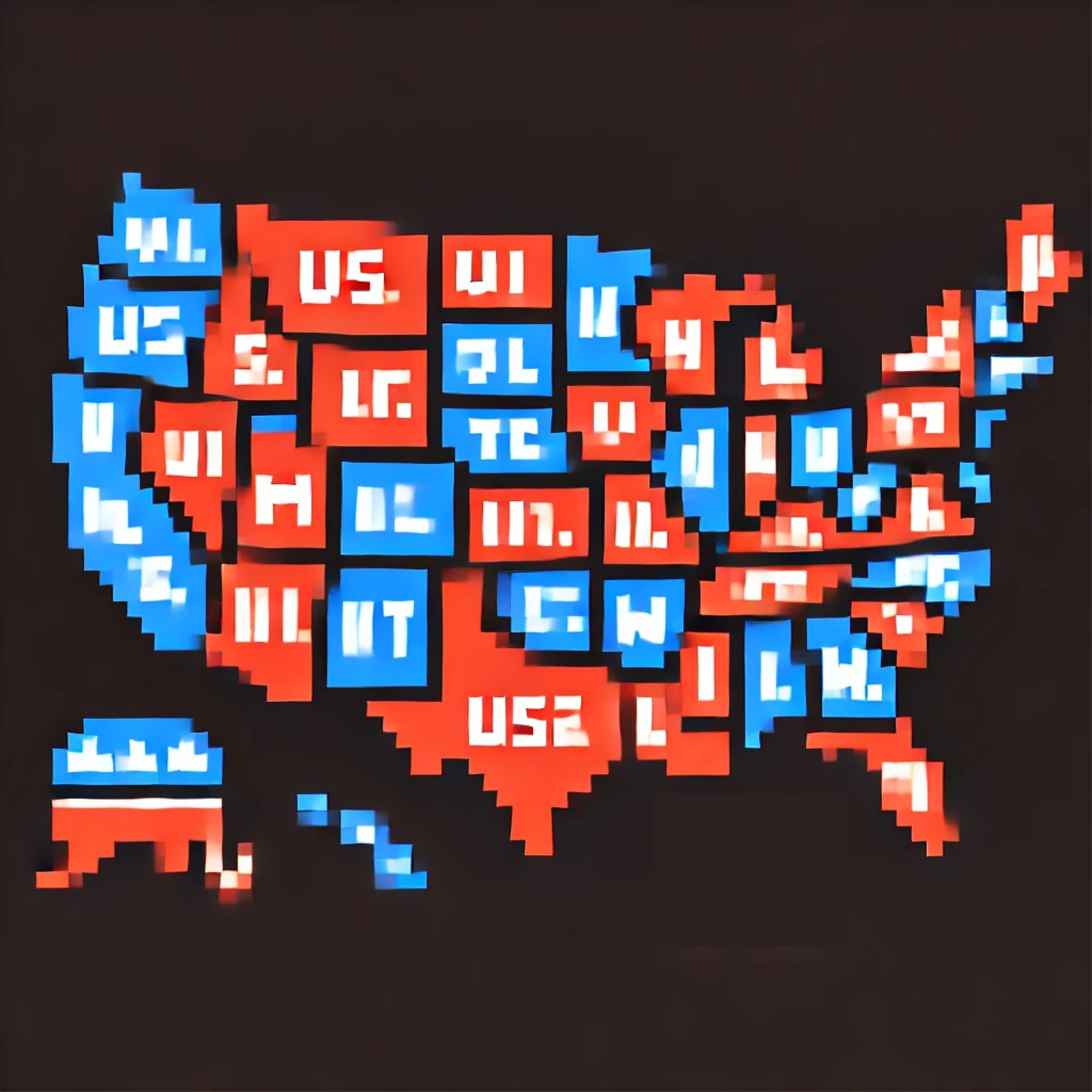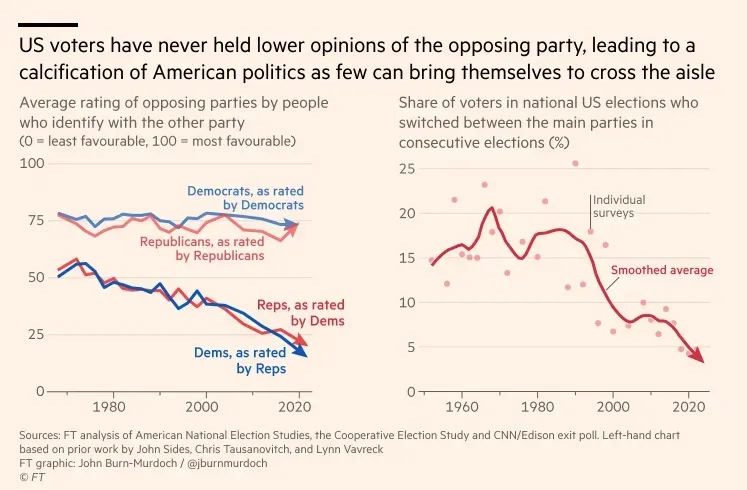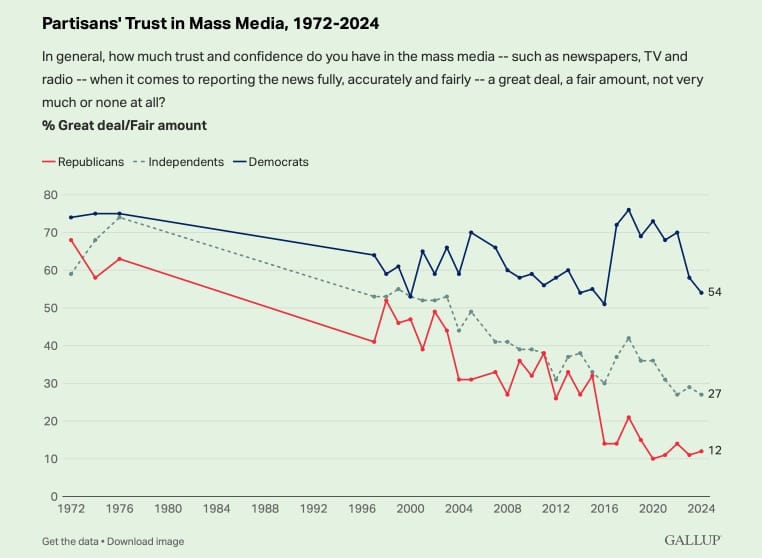Why the US needs a national service program
Regardless of who wins this election, America will be bitterly divided. Here’s a plan to fix that.

Related
Key takeaways
A national service program could reduce political and social divides by bringing together young Americans from diverse backgrounds for shared service experiences.
Participants would gain valuable skills and build empathy across socioeconomic, geographic, and political lines, fostering unity and civic engagement.
The program would offer options beyond military service, such as healthcare, skilled trades, and tech roles, with incentives like GI Bill benefits to support further education or vocational training.
Listen to this article on the Astra Podcast! Released on Apple and Spotify.
On the eve of the 2024 election, America faces pre-Civil War-era political polarization. As reported by the New York Times this week, citizens are increasingly relocating to states that align with their political views—Democrats to Democrat-led states and Republicans to Republican-led states. Citizens hold a low opinion of members of the opposing political party and rarely switch their vote between parties. America is locked in a stalemate of political tribes, living in two separate worlds: one red and one blue.

Trust in the media has fallen to its lowest level on record. A closer look at the data reveals that Republicans have significantly lower trust in mainstream media compared to Democrats, who distrust conservative media. The result is two media echo chambers, two political universes, and two sets of political facts.

The U.S. political system was not designed for a 21st-century, algorithm-driven information ecosystem. In this article, I’ll explain why a National Service Program would help bridge political divides and foster empathy among Americans. The trends described in this article do not describe every Democrat and every Republican, but they do describe large changes across the American electorate.
The destruction of Place
In the early to mid-20th century, Americans often grew up, lived, and worked in their place of birth. However, after the 1970s, more Americans began going to college, and leaving their hometowns and relocating to large metropolitan areas, where more job opportunities were available. This shift left smaller towns and rural areas deprived of human capital, resulting in a significant "brain drain." This pattern continued over decades, and globalization accelerated the trend.
Today, education is one of the strongest predictors of political party affiliation. The Democratic Party is largely composed of college and graduate school educated workers, while the Republican Party increasingly represents those without a college degree. This marks a reversal from the New Deal Coalition, when the Democratic Party was the main base for the working class, and the Republican Party represented wealthier, more educated citizens.
Two Americas
The result of this decades-long trend is that Americans with college to graduate-level education, primarily in urban areas, live in one economy, while those without a college degree, often in rural areas, live in a different economy. The job market and opportunities for each are starkly different. Perceptions of globalization's impact also differ sharply: Democrats, who have generally thrived in a globalized economy, view it more favorably, while Republicans, increasingly left behind, see it as a source of economic hardship.
Today’s politics is a struggle between the upper and lower classes. This Marxian conflict between the bourgeoisie and the proletariat mirrors the same tensions that have ultimately led to the decline of many past societies. It wasn’t always this way; American political parties were once more mixed and less divided along class lines, even in the New Deal-era.

Today, many Americans spend their entire lives in the places where they grew up. Those raised in urban areas tend to remain in urban settings. People who grow up in rural areas tend to stay in rural areas. There is very little interaction between people of different backgrounds, education levels, class statuses, and, increasingly, political beliefs. As a result, people often lack empathy for lifestyles and experiences they haven't lived and don’t fully understand.
National service
To address this, I propose a national service program that encourages meaningful interactions among people from diverse geographies, classes, and backgrounds. This program is designed for individuals around 18 years old, providing an opportunity after high school graduation and before starting college, if they choose to pursue higher education. Military service would be one option to fulfill the service requirement, but non-military options would also be available. These could include roles that build in-demand skills, such as healthcare work, software development, and skilled trades. The mandatory service period would be one year, with options for voluntary extensions in various programs. There is strong potential to develop highly sought-after graduates. In Israel, for example, graduates of the elite Unit 8200—the cyber corps of the IDF—are in high demand within the tech sector after completing their military service. Citizens who complete their service would receive full GI Bill benefits, offering scholarships for college, apprenticeships, or other vocational education pathways.
A national service program could be a transformative path forward for a divided America, bridging gaps that have grown over decades of economic, geographic, and ideological sorting. By fostering a shared sense of duty and encouraging face-to-face interactions among young Americans from different backgrounds, such a program could nurture empathy, strengthen civic bonds, and create a sense of unity beyond partisan divides. Participants would not only gain valuable skills but also develop a better understanding of the varied lifestyles, struggles, and aspirations that make up the fabric of the nation. Similar programs in other countries have shown how service can break down barriers and create opportunities for personal and professional growth. At a time when Americans increasingly live in isolated worlds of red and blue, a national service program could be a crucial step toward rebuilding trust, respect, and a cohesive sense of national identity.
